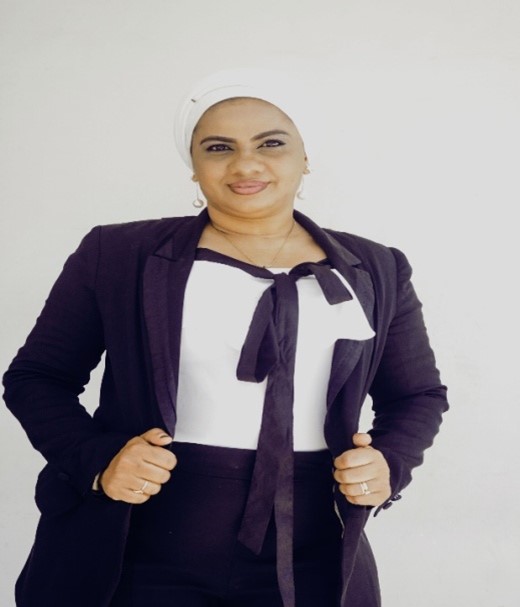Meet TRAFIG Team member Bishara Msallam
I wish I could do more
Meet Bishara Msallam - Program Officer (Legal and Community Empowerment) at DIGNITY Kwanza - and find out more about her experience, her motivation and her work in the TRAFIG project.
I am Bishara Msallam, an advocate working with DIGNITY Kwanza, a Tanzanian NGO that is mandated to safeguard and promote the human dignity of refugees and other marginalized populations for the attainment of their social and economic development. Through legal services, community empowerment programs and advocacy, DIGNITY Kwanza contributes to the efforts to create and foster a refugee regime that effectively responds to the needs of refugees, host government and host community.

Photo: Bishara Msallam
I have been performing my duties as legal counsel, sitting behind my desk and interviewing my clients, or as a training facilitator, explaining to them their rights and duties, for over four years now. I would see urban refugees and other vulnerable migrants in a refugee-like situation attending seminars and workshops – dressed up nicely in the Congolese fabric “Kitenge” with smiles on their faces and full of energy – and think that I knew them and their situations well. But my imagination was far from reality.
In 2019, through the TRAFIG project, I got the opportunity to visit refugees and other vulnerable migrants in refugee-like situations at their homes and observe their lives. I came to realize what their ‘real’ day-to-day life was all about, and I could see the difficulties they have to endure and hide behind their smiles. Seeing children at home during school hours because they have no school uniforms to wear, or watching a mother cry helplessly for seeing her children’s futures and dreams shattered before her – just because she failed to buy them their school uniforms, which cost only 6 USD (per child) – after all the trouble she went through to get them enrolled in a government school was heartbreaking and the hardest moment of all. This is just one of the situations I observed, but the refugees’ general poor living conditions and their struggles to hide their identities have changed me. I had to rethink my position as a human being and my role as a refugee rights advocate. I felt frustrated and outraged, and I wish I could do more.
I am now more appreciative of life and what I have as a human being. I could not believe that the amount of money I would spend to buy an internet bundle simply to scroll through social media pages, or the money I would spend on lunch with my friends, could equal the cost of securing a child’s future. I am now more friendly, understanding, and considerate in interactions with my clients.
Before this experience, I would just blame the system for why things were not working well for my clients despite my efforts. Now, instead, I am encouraged by my clients' resilience and the hopefulness they portray through the smiles they wear in my office, where I work zealously with them, the government and other stakeholders to find solutions for their situations. In the course of my work in the TRAFIG project, experiencing what refugees' everyday life really entails has proved to me that the formal legal status is of key importance to displaced persons’ situations, but so is having the means to support themselves and their children. The legal status and livelihood programs are two sides of the same coin and need to be considered as such.
By Bishara Msallam
The views and opinions expressed in this blog do not necessarily reflect the opinion of the TRAFIG Consortium or the European Commission (EC). TRAFIG is not responsible for any use that may be made of the information contained therein.